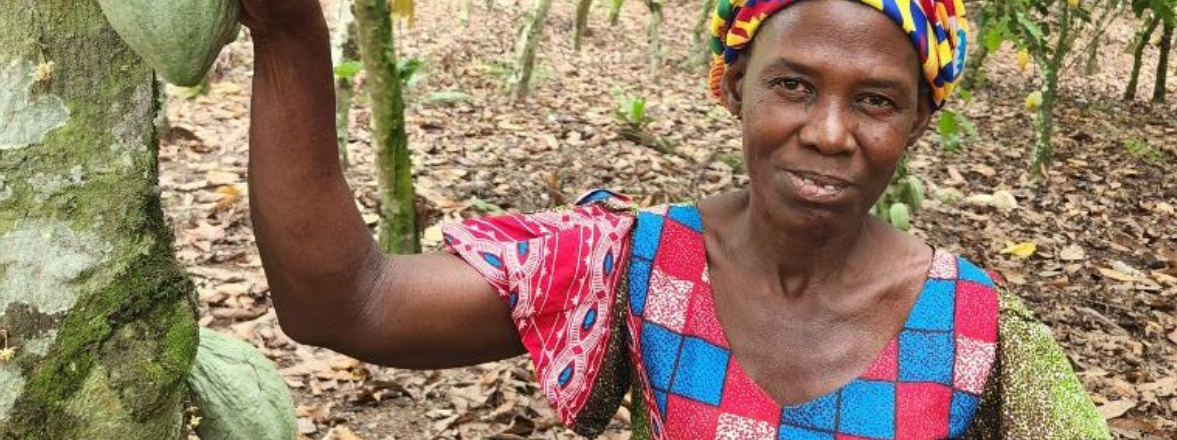Introduction
The United States Agency for International Development (USAID) is working with ECOM Agro-Industrial Corp. (ECOM), a global commodity trading and processing company specializing in coffee, cocoa, and cotton, to strengthen women’s land rights and economically empower women in the cocoa value chain in Ghana.
An initial gender assessment showed that cocoa is considered a man’s crop, and gender inequality is pervasive in the cocoa sector in Ghana. Although women are involved in nearly all activities of cocoa production, their roles and contributions remain unseen, undervalued, and often unpaid. This is caused by a combination of unequal access to productive resources, unbalanced power relationships, and harmful gender norms.
Because women typically do not own land independently, they are often not perceived as farmers by themselves or others. They have low representation in cocoa producer groups, which are an important vehicle for receiving inputs, extension services, financial services, and technology. Division of labor in cocoa farming households is highly gendered, with activities with social and economic value reserved for men. Women are primarily responsible for unpaid household and caring tasks and have less availability to work in cocoa farming (producing less cocoa as a result), attend trainings, and engage in income diversification activities. Women have little to no involvement in the sale of cocoa and limited decision-making power over the use of income from cocoa production.
Evidence from other women’s empowerment initiatives has shown that empowering women in the cocoa value chain leads to increased productivity and benefits for women, cocoa farming families, companies, and the cocoa sector more broadly. Empowering women includes the establishment of an enabling environment by engaging men to shift harmful gender norms on division of labor, access and control of resources, decision-making power, and gender-based violence. It also involves equipping women with the skills necessary for them to take a greater role in cocoa farms, join producer groups, take on leadership positions, and pursue alternative income-generating opportunities. To that end, it is important to provide women with training on self-confidence, financial literacy, entrepreneurship, and several socioemotional (or “soft”) skills necessary for them to succeed as cocoa farmers and entrepreneurs.
This manual is designed as a practical guide for facilitators to deliver empowerment and entrepreneurship training to women in cocoa communities. In the spirit of collaboration and efficient use of available resources, it draws on existing and publicly available training approaches1, which have been adapted to the context of the cocoa value chain in Ghana.


